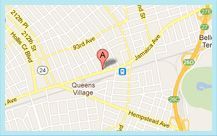What’s New in Glaucoma?
Glaucoma surgery can reverse damage to the optic nerve with reversal of lamina cribrosa displacement. Researcher in Seoul, Korea, looked at 35 eyes of patients who underwent trabeculectomy. Intraocular pressure (IOP) was decreased from 27.2±8.9 mmHg (range, 14-47) to 10.5±3.4 mmHg (range, 6-21) within six months postoperatively. The amount of posterior displacement of the Lamina cribrosa was significantly decreased from a mean preoperative level of 614.58 to 503.90 µm after six months. The thicknesses of the LC and prelaminar tissue were significantly increased. The amount of reduction in the Lamina Cribrosa displacement was associated with younger age, larger baseline LC displacement, and greater IOP reduction. This greater IOP reduction can help reduce progression of glaucoma and, in some cases, reverse visual field damage and nerve fiber layer damage from glaucoma.
Our Recent Post:
SHARE POST:

Contact Us





